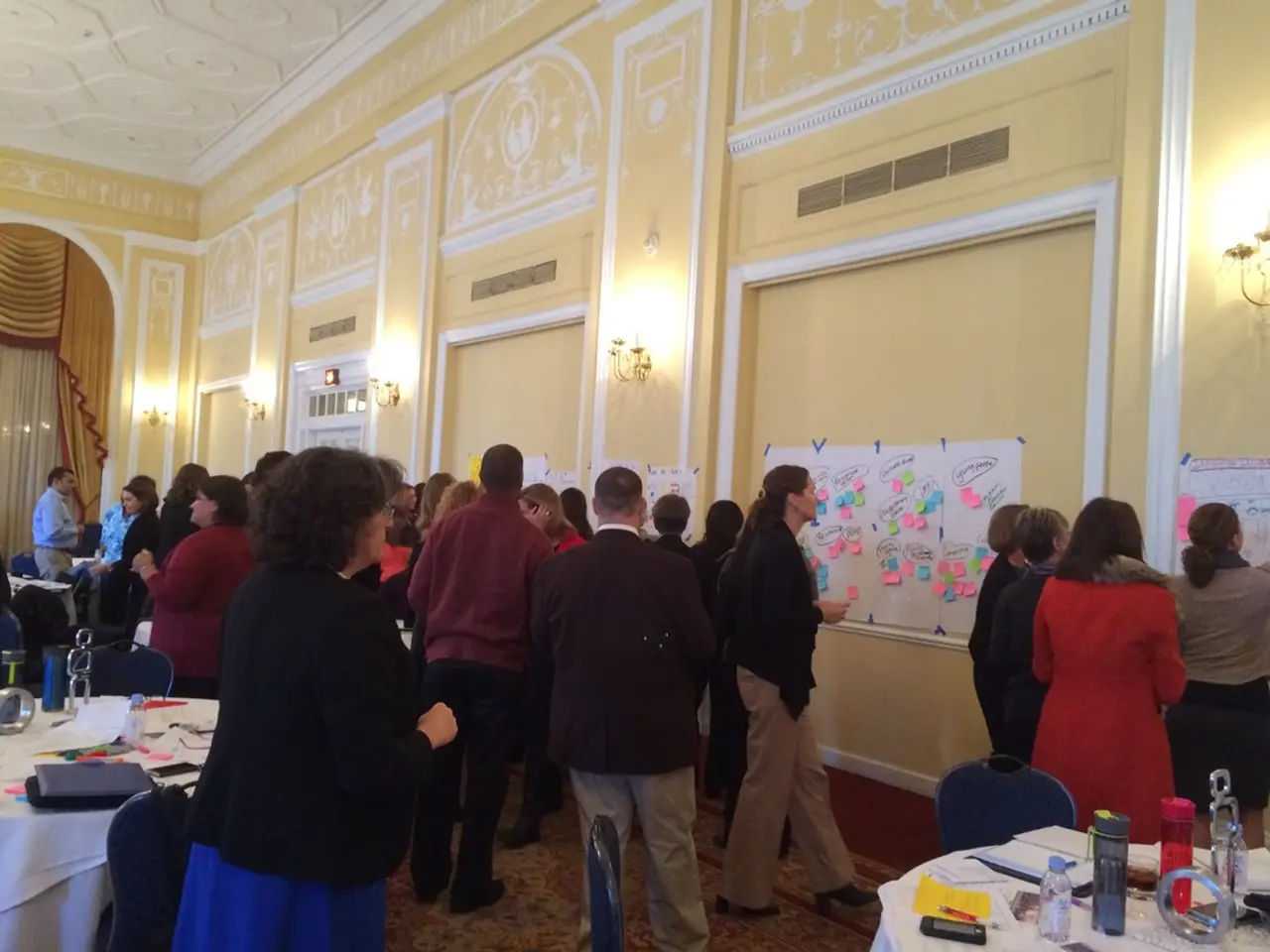Data-Centric Political Insights: Breakdown of Political Procedures Using Quantitative Analysis
In the rapidly evolving world of politics, data is no longer just a byproduct of elections and governance. It's become a critical tool for understanding, predicting, and influencing political outcomes. Enter Political Analytics, a field that leverages data to provide insights, forecast trends, and inform strategic decisions.
Navigating the Political Landscape
Political Analytics offers a comprehensive view of the political ecosystem, focusing on growth, impact, and performance. By analysing the political landscape of an area, predicting outcomes, identifying opportunities, and understanding risks, it provides valuable insights for political actors, policymakers, and stakeholders.
Harnessing the Power of AI
The integration of Artificial Intelligence (AI) into political analytics has revolutionised the way political decisions are made and campaigns are conducted. Here are some key methods that are transforming the political landscape:
Real-Time Public Sentiment Analysis
Utilising AI and Natural Language Processing (NLP), political actors scan vast data from social media, news, blogs, and forums to detect opinions, emotions, and trends dynamically. This allows politicians and governments to gauge voter moods, tailor messaging, respond swiftly to issues, and monitor public reaction to policies or events without delay.
Predictive Analytics Systems
These systems analyse large datasets encompassing multiple factors to forecast the outcomes of policies, electoral results, or decision impacts. Governments and policymakers use predictive analytics to optimise decision-making, anticipate consequences, and plan mitigations. Moreover, when accessible to stakeholders like voters and civil organisations, these models foster transparency and informed public discourse.
AI-Powered Voter Microtargeting
Campaigns segment electorates into nuanced groups based on demographics, behaviour, and online activity to deliver personalised communications aimed at maximising engagement and voter turnout. AI refines these segments and predicts voter behaviour, allowing campaigns to allocate resources efficiently and craft messages that resonate with specific voter profiles.
Content Analysis
This method systematically examines text from speeches, debates, or media to identify recurring themes, rhetoric, or framing strategies. Political scientists use content analysis to track candidate positioning, messaging effectiveness, and discourse trends.
A Comprehensive Approach to Political Analysis
In practice, political campaigns and governments combine these analytics to inform electoral strategies, policy development, crisis management, and public communication. The integration of AI enhances the scale, speed, and precision of these analyses, reshaping the way political decisions are made and campaigns are conducted in the 2020s.
Political Analytics is also used for Party Analysis, examining parties' political platforms, social values, ideology, leaders, and structure. It can study voting patterns, the impact of social media on elections, and how Americans connect with their representatives. Moreover, it aids in Party Cadre Analysis, predicting elections by understanding the issues and problems that are most important in a district.
In addition, Political Analytics is instrumental in Political Crisis Management, dealing with an event's political aspects, including how to control information, manage public perception, and influence policy-makers during times of emergency. It's also crucial for Political Reputation Management, ensuring a positive political reputation to gain supporters, and in Content Management & Analysis, ensuring that all content reflects the relevant policies and messaging.
Lastly, data-driven analysis of political processes can help understand how governments work, providing a more inclusive democracy and informed public discourse. With Political Analytics, the future of politics is data-driven, dynamic, and responsive, shaping the political landscape for a more informed and engaged society.
[1] "The Future of Political Campaigning," Harvard Kennedy School, 2020. [2] "Predictive Analytics for Government," SAS Institute, 2019. [3] "AI in Politics: A New Era for Political Campaigning," The Guardian, 2021. [4] "Political Analytics: A Comprehensive Approach," Stanford University, 2020. [5] "Political Analytics: Methods and Applications," MIT Press, 2019.
- Political Analytics encompasses a wide spectrum of services, including growth, impact, and performance assessments for various political actors and policymakers.
- Leveraging AI and AI-driven tools such as real-time public sentiment analysis, predictive analytics systems, AI-powered voter microtargeting, and content analysis is transforming the political landscape by providing swift insights and strategic decisions.
- Predictive analytics systems, accessible to stakeholders like voters and civil organizations, foster transparency and inform the public discourse through the analysis of multiple factors that forecast the outcomes of policies, electoral results, or decision impacts.
- AI-powered voter microtargeting segments electorates into nuanced groups, enabling campaigns to allocate resources efficiently and craft messages that resonate with specific voter profiles.
- Political Analytics aids policymakers in crisis management by handling an event's political aspects, controlling information, managing public perception, and influencing policy-makers during emergencies.
- The integration of AI in Political Analytics is crucial for Political Reputation Management, ensuring a positive political reputation to gain supporters, and Content Management & Analysis, ensuring that all content reflects the relevant policies and messaging in efforts to create a more inclusive democracy and informed public discourse.








